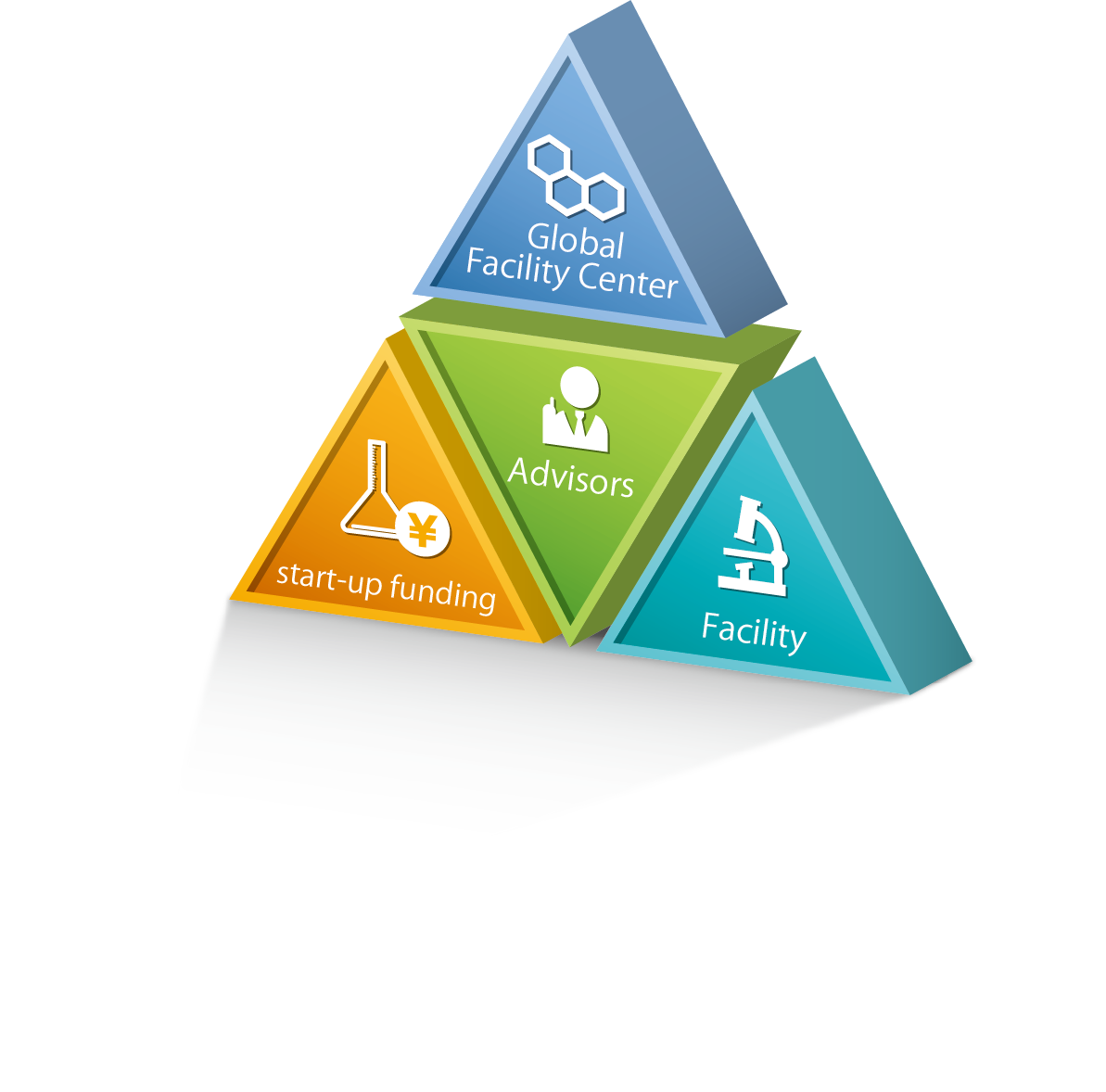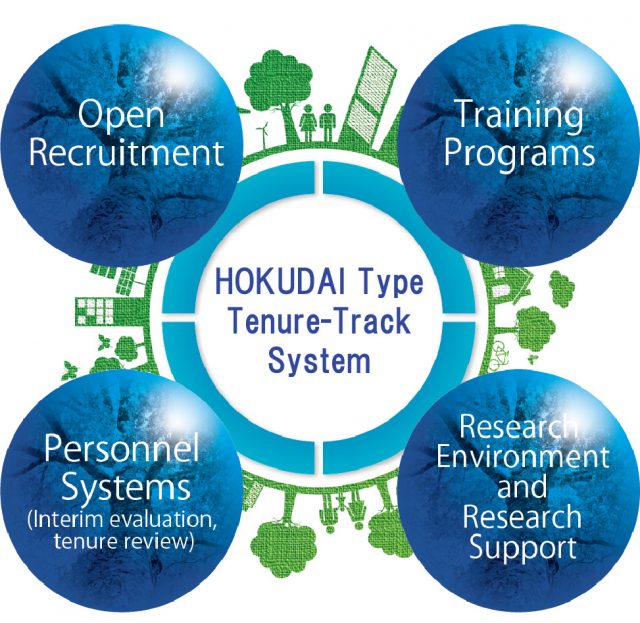A System for Training the Next Generation of Leaders Tailored for Hokkaido University
With the aim of developing next-generation leaders, the HOKUDAI Type Tenure-Track System defines its desired vision of tenured faculty as follows.
- To be a next-generation university leader who promotes research and education in an integrated scientific field
- To be a next-generation leader who can judge, plan, and carry out the University’s ideal role in society
This system is supported by four pillars, namely “open recruitment,” “personnel systems (interim evaluation/tenure review),” “training programs,” and “research environment and research support,” that generate a synergistic effect that enables the entire tenure-track system to operate effectively and efficiently.
Within the HOKUDAI Type Tenure-Track System, the Leader Development Promotion Committee (LDPC) supervises all processes, from recruitment of tenure-track faculty members to personnel systems such as interim evaluations and tenure review.
Open Recruitment
(International Recruitment, Two-Stage Screening)
Under the HOKUDAI Type Tenure-Track System, the University recruits tenure-track faculty members through fair and transparent selection that follows an active call for applications from talented personnel in Japan and overseas. International recruitment under this system is conducted by L-Station for the University as a whole. The screening of candidates takes places in two stages. In the initial screening, the Personnel Selection Committee of a participating department conducts a review based on documents and face-to-face interviews with a focus on research. In the secondary screening, the LDPC examines the candidate’s overall leadership skills
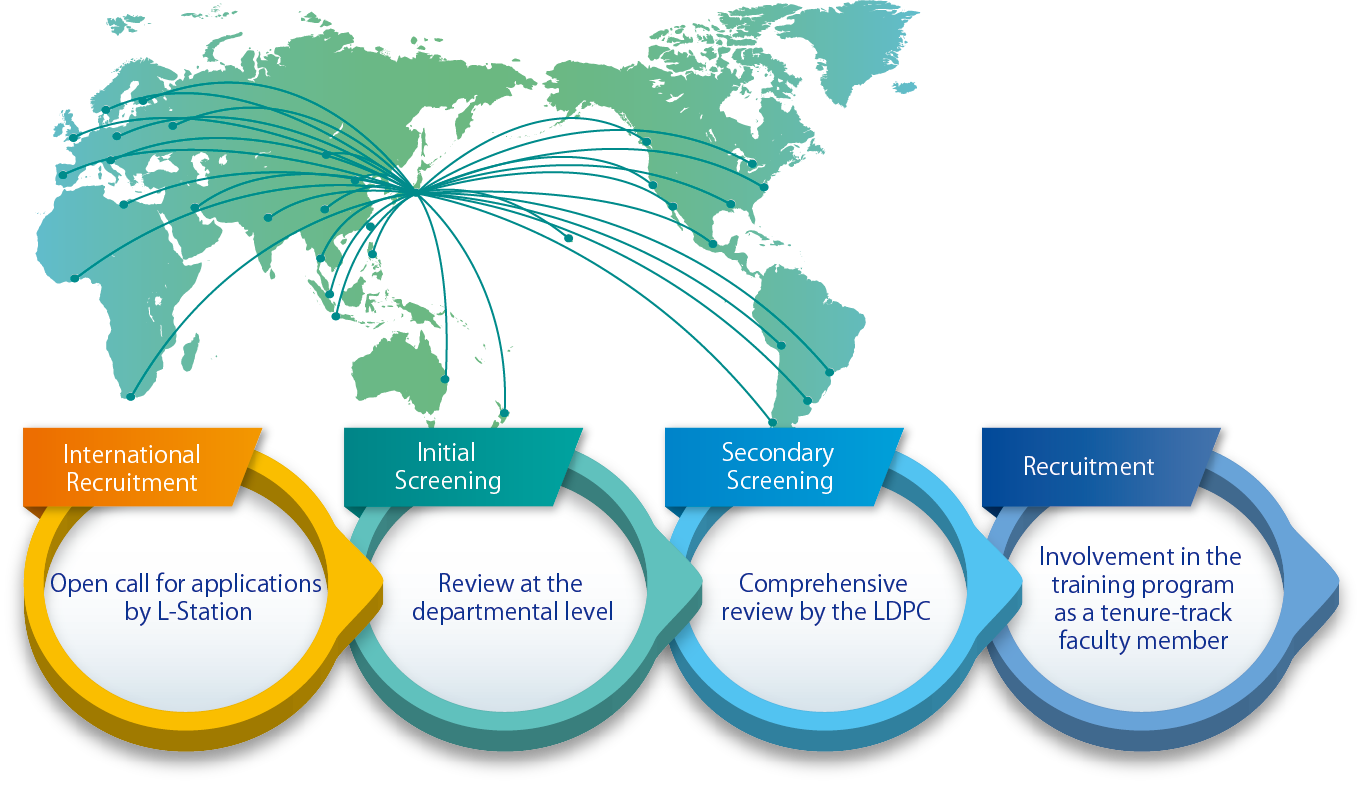
Personnel Systems
(Interim evaluation, Tenure review)
In the HOKUDAI Type Tenure-Track System, interim evaluations are conducted in the third year, with tenure review to be conducted by the final year of a posting. Both the interim evaluation and tenure review are conducted in two stages, once again involving the participating department and the LDPC. In the interim evaluation, in addition to teaching and research, candidates’ efforts during the training program are also included in the scope of review, the results of which will be provided to tenure-track candidates as written feedback. Tenure-track faculty members who pass the tenure review will be assigned to tenured posts in the participating department. The availability of a tenured post is assured at the time of initial recruitment. While tenured posts under this system are ranked as associate professors as a general rule, in some cases instructors and assistant professors may also be recruited to tenured posts based on the personnel situation of the department in question. Moreover, in cases of outstanding performance, an early tenure review may be conducted after the interim evaluation and prior to the final year.
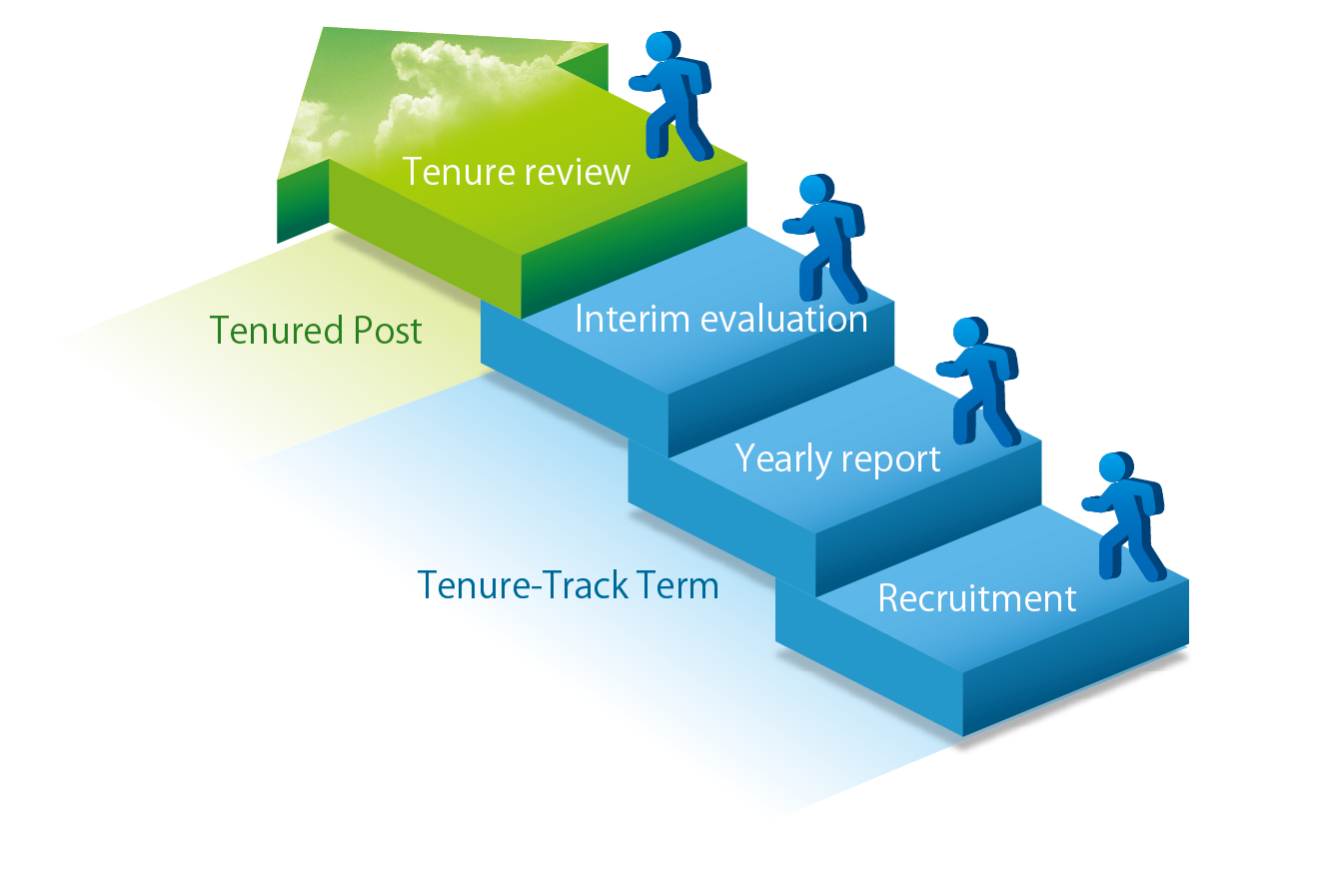
Training Programs
On top of their research and teaching skills, tenure-track faculty members will also be required to have management abilities as leaders. Offerings such as on-the-job training (OJT) programs will be available for improving management skills and seminars for improving transferable skills. By engaging with this program, tenure-track faculty members improve their overall abilities as researchers – that is, their organizational skills, promotional skills, analytic skills, planning skills, and international experience – in a well-balanced manner. Participation in training programs will also be included in the scope of review in the context of their interim evaluation and tenure review.
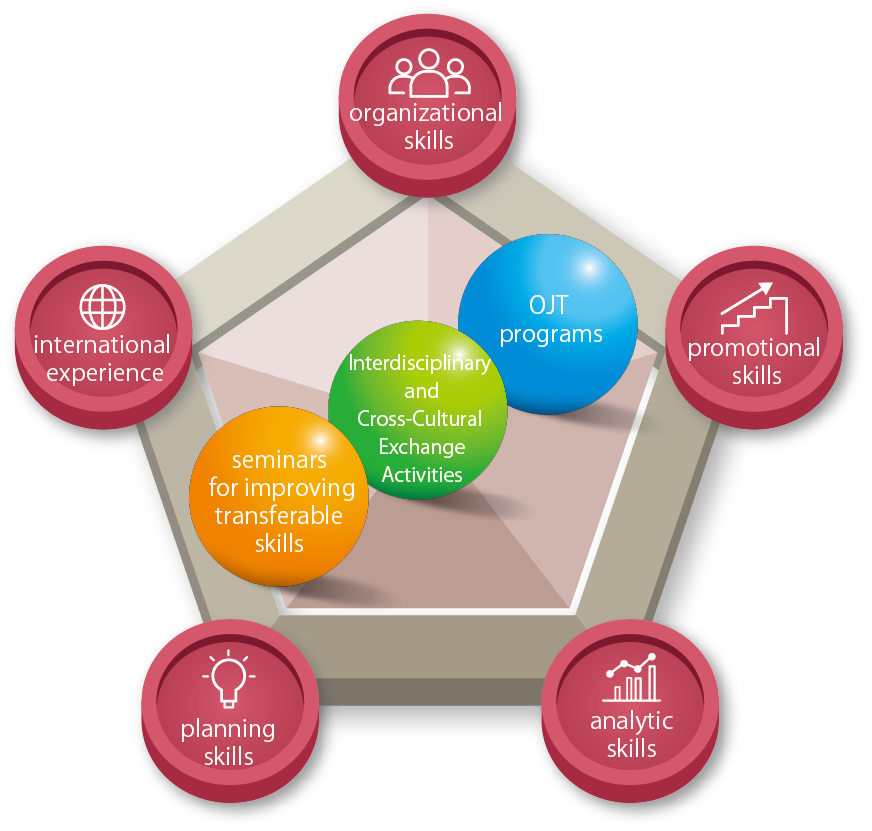
Environment and Support
The mainstays of research environment provision and research support consist of the appointment of advisors, the provision of startup research funding, research support such as through the use of shared equipment, support for expenses associated with OJT programs, and guaranteeing effort. Research advisors will be appointed for each new tenure-track faculty member immediately upon their recruitment to provide advice pertaining to such issues as research, teaching, and management activities. Moreover, dedicated mentors for tenure-track faculty will be assigned to L-Station to be available for consultation. Following their appointment, research expenses (for the first and second year) will be disbursed as start-up funding, with research effort set at a minimum of 50%. Please refer to the following link for information about the Global Facility Center, which offers an environment for using the University’s shared equipment.
